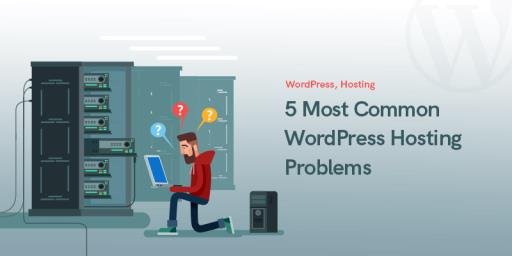Website Hosting Common Problems: A brief Guide

Website hosting is like a home for your website online. Just like a house, it keeps your website safe and accessible to visitors. A one-second delay in loading times can make 7 out of 100 people leave your site. Good hosting prevents problems like downtime, slow loading, and security breaches. So, choosing the right hosting is crucial for your online success.
Common Hosting Problems
Downtime and Server Errors
Downtime is like a nightmare for website owners. It’s when your website suddenly vanishes from the internet, leaving visitors frustrated with error messages. Each moment of downtime means losing business and potential customers.
Sometimes, instead of disappearing completely, your website might display confusing messages like “404 Not Found” or “500 Internal Server Error.” These errors usually happen because of messed-up files or software issues.
The good news is that some simple tricks can fix these errors, like clearing your website’s temporary data. But for trickier problems, it’s best to get help from your hosting provider.
Slow Loading Speeds
Website loading speed is the silent salesperson on your online storefront. A slow website translates to impatient visitors who bounce away, just like customers abandoning a store with long lines. Did you know a one-second delay in loading times can slash conversions by 7%? This is because speed is crucial for the user experience; no one enjoys waiting. But website speed isn’t just about happy visitors; it’s also a key player in SEO. Search engines favor faster-loading websites, giving them a ranking boost in search results.
So, what’s slowing down your website? The culprit could be bulky, uncompressed images that take forever to load. Too many plugins, while adding features, can also act like anchors, weighing down your website’s speed. The good news is that there are website speed superheroes ready to save the day. Image compression tools can shrink those heavy files without sacrificing quality. Regularly declutter your website by deactivating unused plugins.
Security and PCI Compliance
Website security is an essential shield that protects both you and your visitors. Just like you wouldn’t leave your house unlocked, a website without proper security is vulnerable to cyberattacks. Hackers can steal sensitive data like customer information, damage your reputation, and even inject malware that infects visitors’ computers. This is especially crucial if your website handles sensitive information like credit card details.
To ensure secure financial transactions, adhering to PCI compliance standards is mandatory. PCI compliance involves a set of guidelines that safeguard sensitive cardholder data. When choosing a hosting provider, security features should be a top priority. Look for providers who offer regular malware scans to identify and eliminate threats before they cause harm. Secure file transfer protocols like FTP over SSL encryption are essential for safeguarding data during transfers.
Limited Resources : Shared Hosting and High Traffic
Shared hosting is often the most budget-friendly option for beginners. Imagine it as a co-working space for websites. Multiple websites share the resources of a single server, including processing power, storage space, and bandwidth. This shared environment keeps costs low, but it also comes with limitations.
Resource limitations can occur when one website on the server experiences a surge in traffic, hogging resources and slowing down all the other websites sharing the server. This can be frustrating for you and your visitors.
- Slow loading times: Frequent website sluggishness, especially during peak traffic periods, indicates your website might be outpacing the shared server’s capabilities.
- Downtime: If your website seems to be down more often than usual, it could be due to resource limitations on the shared server.
- Security concerns: Shared hosting environments are inherently more susceptible to security breaches compared to dedicated plans.
- VPS Hosting (Virtual Private Server): Think of VPS hosting as a private office within a co-working space. You share a physical server with other websites, but you have a dedicated portion of the resources, ensuring more control and scalability.
- Dedicated Hosting: This is the ultimate VIP treatment for your website. You get an entire server to yourself, offering maximum control, security, and performance, ideal for high-traffic websites.
Lack of Help and Support
When your website crashes, good customer support from your hosting provider is a lifesaver. It helps fix issues quickly, minimizing downtime and giving you peace of mind. Look for 24/7 live chat, phone support, and a helpful knowledge base to keep your website running smoothly and your business thriving.